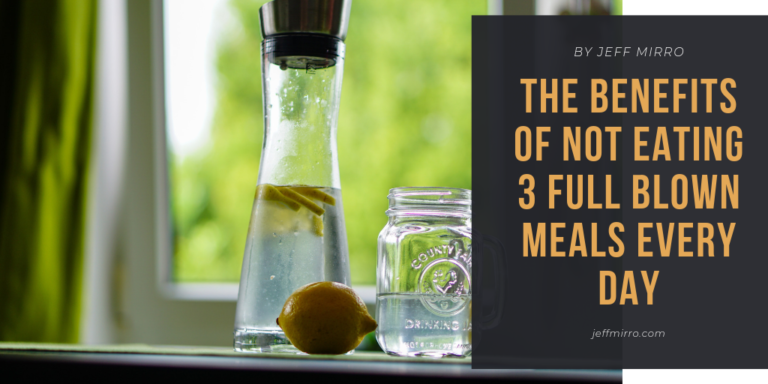Everything You Need to Know about Vitamin C
Intermittent fasting offers a lot of freedom when it comes to dietary choice. Whether you practice 16:8 or OMAD (One Meal A Day), you will not need to count calories or macronutrients. You can even follow whatever way of eating you want. Paleo, keto, carnivore, and other low-carb diets, along with vegan and vegetarian diets, all work well with the IF lifestyle and provide maximum flexibility. Still, if you’re practicing intermittent fasting for health, you need to ensure you are getting all the essential nutrients you need. Vitamin C is one of those nutrients. Your body cannot make its own vitamin C, so you need to get it from outside sources. Vitamin C is a powerful antioxidant, but unfortunately, many people are not getting enough of it. Here is what you need to know to enjoy all the great vitamin C benefits and keep your body on track.
All the Sweet Vitamin C Benefits
Vitamin C might be best known for preventing scurvy, a disease once almost synonymous with ancient sailors. Today, scurvy is pretty rare, but vitamin C is still on our top 10 list of essential antioxidants. You might even say it does a little bit of everything.
Boosts Immunity
You might be most familiar with vitamin C’s ability to keep your immune system strong. It does this by helping your body create lymphocytes and phagocytes. These are specialized white blood cells that are critical in fighting against infections. Vitamin C also helps keep the skin’s barriers intact, which can speed wound healing time.
Combats Inflammation
Antioxidants are molecules that help protect your cells from free radicals, which trigger oxidative stress. When you ingest more vitamin C, you can boost your antioxidant levels up to 30 percent, combating the inflammation that is strongly tied to chronic illness.
Maintains Skin Health
Vitamin C helps the body produce collagen, a major component in connective tissues and fibrous tissues, such as that in:
- Bones
- Ligaments
- Tendons
- Skin
- Cartilage
- Blood vessels
- The gut
Inadequate amounts of vitamin C can lead to delayed wound healing and tissue damage. In fact, scurvy, which is associated with vitamin C deficiency, causes bleeding gums, loose teeth, and swollen joints. Vitamin C’s antioxidant activity can help heal wounds, control infections, and keep your body’s tissues intact, strong, and healthy.
Prevents Anemia
Your body needs iron to make red blood cells and transport oxygen throughout your body. In order to absorb iron from the foods you eat, especially in plant-based foods, you need an ample supply of vitamin C. Eating more vitamin C can improve your ability to absorb iron by up to 67 percent! If you are anemic or borderline anemic, adding more vitamin C to your day could help you combat the deficiency better than taking iron supplements alone.
Protects Your Brain
Oxidative stress and inflammation take a heavy toll on the brain. Over time, this can increase the risk of dementia and cause cognitive dysfunction and decline. People with dementia are often found to have lower blood levels of vitamin C, a powerful antioxidant. Getting more vitamin C in your daily diet may have a protective effect on your brain as you age, keeping your mind sharp and your memory intact.
Protects Heart Health
Heart disease is a top killer, both in the U.S. and around the world. While diet and exercise play a major role in keeping the heart healthy, one of the biggest vitamin C benefits might just be the added boost it offers to your heart health.
Vitamin C supplements can relax blood vessels and reduce blood pressure levels. Vitamin C also helps reduce other risk factors for heart disease, such as LDL and triglyceride levels. One study found that daily vitamin C supplements reduced the risk of heart disease by an astonishing 25 percent among study participants compared to those who did not take a supplement.
Getting More Vitamin C in Your Day
Now that you know how important vitamin C is, you are probably wondering how to get more of it into your diet.
Vitamin C is not made by the body, but it can be found in plenty of fresh, wholesome foods. You can also enjoy vitamin C in supplement form. Also known as ascorbic acid, L-ascorbic acid, or L-ascorbate, vitamin C can help you keep your body and mind functioning at their peak.
Recommended Dietary Allowance
If you are over 19, you should aim for 90 mg of vitamin C if you are a man and 75 mg if you are a woman. Pregnant and lactating women need 85 and 120 mg respectively. Smokers are at a higher risk of vitamin C deficiencies. They are advised to take 35 mg above their normal dietary allowances.
Is there such a thing as too much of a good thing?
Vitamin C is a water-soluble vitamin, and your body will likely just rid itself of anything it does not need. However, some people do practice “mega-dosing” to get even more vitamin C benefits. The tolerable upper intake level is the highest level that you can take without potentially harmful effects. For vitamin C, this is 2000 mg a day. Using more than this amount is not necessarily going to make you sick, but absorption can decrease at high levels, and you might suffer some gastrointestinal side effects.
The Best Sources of Vitamin C
You might think of oranges and other citrus fruits when you think of vitamin C, but these are not the only or even necessarily best sources of C.
Eating a produce-heavy diet can ensure you get all the vitamin C benefits you need because all fruits and veggies contain some vitamin C. Some of the best sources include:
- Bell peppers
- Kale and other leafy greens
- Broccoli
- Papaya
- Berries
- Cauliflower and broccoli
- Brussels sprouts
- Pineapple
- Kiwi
- Mango
- Watermelon
- Tomatoes
- Winter squash
Some other foods and drinks are fortified with vitamin C. Cooking or processing naturally vitamin C-rich foods can compromise the level of the nutrients contained. To maximize the amount of vitamin C you get in your food, you will need to eat it raw when possible. As far as meat and lower-carb options go, liver is a great source of vitamin C. Other types of meat contain trace amounts of the vitamin, but if you are following a low-carb diet heavy on meat, particularly if you aren’t eating a lot of organ meats, you may want to strongly consider taking a vitamin C supplement to fill this important nutritional gap.
Intermittent Fasting and Vitamin C: Natural Partners in Health
When it comes to your health, both your diet and your lifestyle play big roles. When both are on point, you can enjoy your best health. Ensuring that you are getting all the vitamin C you need can help you optimize your health and your life.
How are you planning on incorporating more of this essential nutrient in your fasting-focused lifestyle to enjoy all the vitamin C benefits in your life today?




